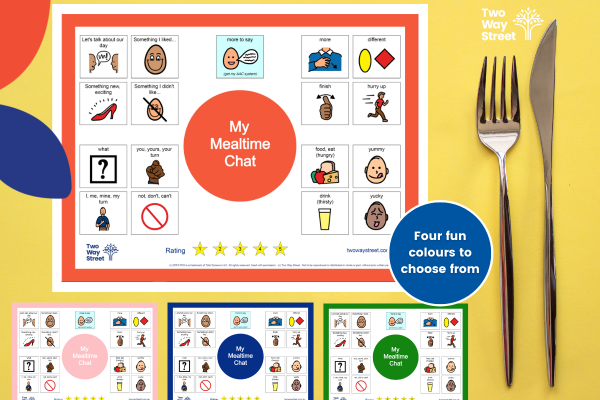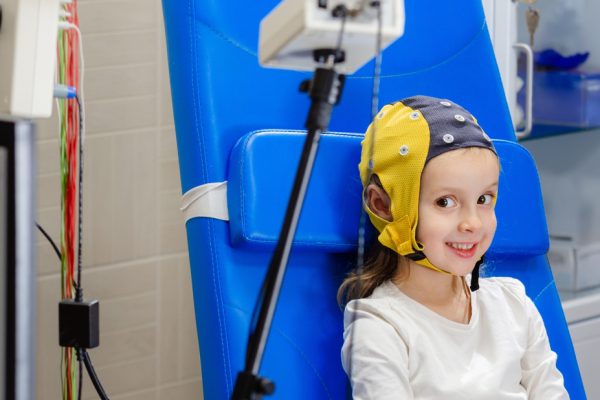
What do you wish people knew about epilepsy?
Did you know that approximately 3% to 3.5% of Australians will be diagnosed with epilepsy at some point in their lives and over 250,000 Australians currently live with epilepsy?
Epilepsy can start at any age although it is more likely to be diagnosed in childhood or senior years.
There are many different types of epilepsies and people’s experiences differ greatly. Some types of epilepsy are age- limited and the person eventually stops having seizures. For others, epilepsy can be life-long.
Seizures are only one part of epilepsy – epilepsy affects day to day life much more than people think. Not only do people tend to have recurrent seizures but they can also have cognitive, psychological and social consequences from having epilepsy.
Because you can’t see it, people in the general community often have a poor understanding of epilepsy and there are many mistaken beliefs.
Epilepsy Action Australia recently asked the epilepsy community: “What do you wish people knew about epilepsy” and had many responses.
The following are just a few of the common themes of these responses. For a more detailed summary – you can visit the original article here – epilepsy.org. au/about-epilepsy/what-do-you-wish- people-knew-about-epilepsy
Not all seizures and no two people with epilepsy are the same – there is no one-size-fits-all treatment.
It’s complicated. Not all seizures are tonic-clonic seizures, which is what is mostly portrayed in the media. Seizures can look very different, including staring off into the distance, fidgeting, wandering, or repeating a purposeless action. Every person with epilepsy has a unique experience with seizures.
Medication does not always work
“I feel like I have a stalker, it’s called Epilepsy”
Sadly about 1 in 3 people with epilepsy will not be able to get seizure control with medication.
There is no magic drug that will just stop seizures and sometimes, no medication or combination of medications work well enough to stop seizures completely. People with epilepsy often find themselves going through medication after medication without much improvement.
“My medication doesn’t totally control the seizures”
If the first few anti-seizure medications don’t stop or control a person’s seizures, the chances that a different medication will be successful are greatly diminished. The terms ‘intractable, refractory or drug resistant epilepsy’ may be used to describe a person’s epilepsy when it doesn’t respond to medications after trialling 2 or 3 medications.
Seizures and/or medication cause fatigue, tiredness, and pain
There is no doubt that a seizure can leave someone feeling tired and sore. It doesn’t necessarily have to be a long or severe seizure either. Immediately after a seizure many people can have symptoms such as confusion, headaches, slurred speech, feeling sick, mood changes and tiredness. Some of these feelings and symptoms disappear after a short while, and others linger.
“Epilepsy medication makes me feel very tired”
Medications also cause unwanted effects and some commonly reported ones for anti-seizure medication include:
Drowsiness, dizziness, unsteady walking, weakness, headache, difficulty concentrating, blurred or double vision, tremor, mood change such as agitation, irritability, depression, stomach upsets, and weight gain or loss. Each medication has its individual possible side effects, and it is important to ask for the Consumer Medication Information about your medication as well as speak to your doctor or pharmacist.
“It’s not the danger of the seizure itself, it’s the injuries, migraine and up to two days in bed afterward that is the part that she struggles with.”
Memory loss
The single most common response was how the effects of epilepsy, seizures and medication affect memory.
Many people with epilepsy report having memory problems more often than the average person. A lot of things can affect one’s ability to remember, such as health, tiredness, depression, anxiety, how well we concentrate and how motivated we are to remember.
“… its very scary with the memory loss all the time and struggle concentrating in busy places as well…”
Seizures certainly do affect memory and there is some individual variation with this. Your memory for what happens during a seizure is usually lost. Seizures can also affect your memory for what happens when you are coming out of a seizure.
“My memory is horrible… my brain doesn’t take long to get overloaded… and people have no idea how isolated it makes you feel from the rest of the world.”
“The memory loss affects the whole family”
Epilepsy carries risks
Just like asthma and diabetes, epilepsy also has an associated risk of injury or death. This is the most tragic outcome of epilepsy and many people who have lost a loved one were never aware it could happen.
In Australia, there are approximately 300 epilepsy-related deaths each year – but this figure is likely to be underestimated. Some of these deaths are due to:
- accidents
- drowning
- seizures that don’t stop – status epilepticus
- suicide
- SUDEP – more than half of these deaths are thought to be due to Sudden Unexpected Death in Epilepsy.
It can be scary to think about the risk of death related to any health condition; however, by knowing the risk exists, you can take positive actions to keep yourself or your family member as safe as possible.
“We lost our 19-year-old daughter last year. We were never told she could die and not once did they tell us about SUDEP. It’s devastating.”
SUDEP
Sudden Unexpected Death in Epilepsy (SUDEP) is when a person with epilepsy dies suddenly and prematurely and no reason for death is found. SUDEP occurs in approximately 1 per 1000 people with epilepsy (1 in 4,500 children).
SUDEP deaths are often unwitnessed with many of the deaths occurring during sleep. The cause is not yet known. However, having tonic clonic seizures that aren’t controlled can put you at higher risk of injury and death.
“EVERY person with epilepsy needs to be made aware of this… his death may have been prevented if someone in the medical profession had bothered to tell us.”
There are steps you can take to reduce seizure related risks, injury or death. These include:
- Get the best seizure control possible.
- Take your medication as prescribed
- Speak to your doctor if you are not happy with your current medication or side effects
- Regular reviews with your doctor
- Be involved in self-management
- Avoid any known seizure triggers for you
- Avoid drinking too much alcohol
- Know when your seizures are most likely to occur
- Get enough sleep
- Be healthy
- Manage stress
- Make sure those close to you know what to do in case of a seizure.
There are a number of devices and monitors for night-time seizure monitoring now available for use in the home. They are designed to recognise seizure-like movements or changed breathing patterns. This triggers an alarm so that help – either a family, friend or emergency services – can be notified.
Employment can be tough
The second highest response from people was in regard to employment, and this topic continues to be a problem across the board.
“Don’t treat people like they’re stupid and incapable of doing their job!”
“… you legally can’t be fired for having it…. but they can make life so uncomfortable for you that you just leave.”
Whether someone’s epilepsy affects their work depends on whether their seizures are controlled, what their seizures are like and how often these happen. It also depends
on the type of work they do, and any risks that having seizures at work might bring. Anyone having seizures may not be able to do jobs that risk personal safety or the safety of other people. As with anybody, the type of work also depends on skills, qualifications and experience. It may also depend on how your epilepsy affects you.
It’s often not recognised as a disability
“..there are few agencies that have any idea what it means, including Centrelink and NDIS…”
Epilepsy seems to slip through the cracks when it comes to getting additional support and services. Because it is an “invisible” condition and seizures occur sporadically, it can be difficult to find help with disability funding or unemployment funding. Some services don’t recognise or understand that having seizures can impact on all aspects of life, despite the evidence that it does.
“…my daughter can’t get disability pension or NDIS…”
“Wish the education department would recognise epilepsy as a disability so that children/adults could obtain much needed support”.
People don’t understand…
Although there is improved understanding of epilepsy in the general community, knowledge is still lacking and seizures are often mismanaged or misunderstood in a public setting.
“I wish they knew a lot more then they think they know”
“I wish they cared more to know more about it”
“People don’t understand what it is like to not be able to drive, live on your own, and to be relying on others for simple things. Not being able to just have a bath to de-stress without someone supervising you.”
Every year Epilepsy Action Australia has more than 4000 new referrals from people affected by epilepsy who are seeking support. They know that at times epilepsy can be a frustrating and isolating condition to deal with, but you don’t have to manage it alone. Call now on 1300 37 45 37 (1300 EPILEPSY) to have a chat about your situation and what support or assistance you would like. Or visit epilepsy.org.au to access their resources and services.






